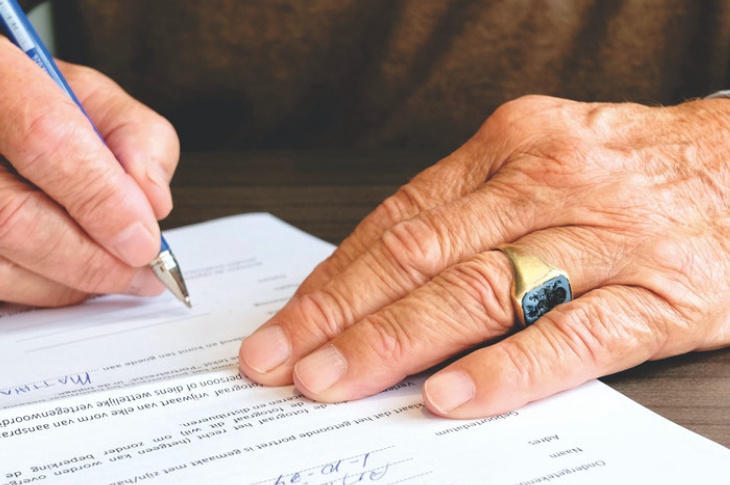Duplicate Land Registration Document
A land registration document is a critical piece of paperwork that establishes ownership and legal rights over a property. However, circumstances may arise where the original document is lost, damaged, or destroyed, necessitating the issuance of a duplicate land registration document. In this guide, we'll explore the process of obtaining a duplicate land registration document, its significance, and the steps involved.
Understanding the Importance of Land Registration Documents:
Land registration documents serve as conclusive evidence of ownership, title, and legal rights associated with a property. They provide vital information such as property boundaries, ownership details, encumbrances, and any existing liens or mortgages.
Significance of Duplicate Land Registration Documents:
A duplicate land registration document, also known as a certified copy or duplicate title deed, holds the same legal validity as the original document. It serves as a replacement for the original in cases where the original document is lost, misplaced, or damaged.
Instances Requiring Duplicate Land Registration Documents:
Several situations may necessitate the issuance of a duplicate land registration document, including:
-
Loss or Misplacement: If the original land registration document is lost, misplaced, or stolen, obtaining a duplicate becomes necessary to establish ownership.
- Damage or Destruction: Natural disasters, fire, water damage, or other unforeseen events may damage or destroy the original document, warranting the issuance of a duplicate.
- Transfer of Ownership: During property transactions such as sale, gift, or inheritance, the transfer of ownership may require the presentation of a duplicate land registration document.
Process of Obtaining a Duplicate Land Registration Document:
The process of obtaining a duplicate land registration document typically involves the following steps:
- Application: The property owner or their authorized representative submits an application for a duplicate land registration document to the relevant land registry office or authority.
- Verification: The land registry office verifies the applicant's identity and ownership details, along with the circumstances leading to the request for a duplicate document.
- Documentation: The applicant may need to provide supporting documents such as an affidavit stating the loss or destruction of the original document, proof of ownership, and any applicable fees or charges.
- Issuance: Upon verification and completion of documentation, the land registry office issues a duplicate land registration document, often in the form of a certified copy or duplicate title deed.
- Registration: The duplicate document is registered with the land registry office and recorded in the property records to reflect the issuance of the duplicate.
Legal Validity and Authentication:
A duplicate land registration document carries the same legal validity and authenticity as the original document. It is issued by the competent authority and bears appropriate seals, stamps, and certifications to authenticate its legitimacy.
Precautions and Safeguards:
While obtaining a duplicate land registration document is essential in certain circumstances, property owners should exercise caution to prevent misuse or fraudulent activities. It is advisable to safeguard the duplicate document securely and maintain accurate records of its issuance.
Conclusion:
In conclusion, a duplicate land registration document plays a crucial role in establishing ownership and legal rights over a property, particularly in cases where the original document is lost, damaged, or destroyed. By understanding the process of obtaining a duplicate document and its significance, property owners can navigate such situations effectively and ensure the protection of their property interests.
-
What is a duplicate land registration document?
- A duplicate land registration document, also known as a certified copy or duplicate title deed, is a replacement for the original document issued in cases where the original is lost, damaged, or destroyed.
-
When might I need a duplicate land registration document?
- You may need a duplicate land registration document if the original is lost, misplaced, stolen, damaged, or destroyed, or when transferring ownership of the property.
-
How does a duplicate land registration document differ from the original?
- A duplicate land registration document holds the same legal validity and authenticity as the original document, serving as a replacement in situations where the original is unavailable.
-
What steps are involved in obtaining a duplicate land registration document?
- The process typically involves submitting an application to the relevant land registry office, providing supporting documents, such as an affidavit of loss or destruction, and paying applicable fees.
-
Is there a specific authority responsible for issuing duplicate land registration documents?
- Yes, the land registry office or authority responsible for maintaining property records is typically responsible for issuing duplicate land registration documents.
-
Are there any precautions I should take when obtaining a duplicate land registration document?
- It's advisable to safeguard the duplicate document securely and maintain accurate records of its issuance to prevent misuse or fraudulent activities.
-
Does a duplicate land registration document carry the same legal validity as the original?
- Yes, a duplicate land registration document carries the same legal validity and authenticity as the original document, issued by the competent authority with appropriate authentication.
-
Can anyone apply for a duplicate land registration document, or does it require specific authorization?
- Property owners or their authorized representatives can typically apply for a duplicate land registration document by submitting the necessary documentation to the land registry office.
-
Is there a fee associated with obtaining a duplicate land registration document?
- Yes, there may be applicable fees or charges associated with obtaining a duplicate land registration document, which vary depending on the jurisdiction and circumstances.
-
What should I do if I suspect fraudulent activity involving a duplicate land registration document?
- If you suspect fraudulent activity involving a duplicate land registration document, you should report it to the relevant authorities and take appropriate legal action to protect your property interests.
Trending



Ask a Lawyer